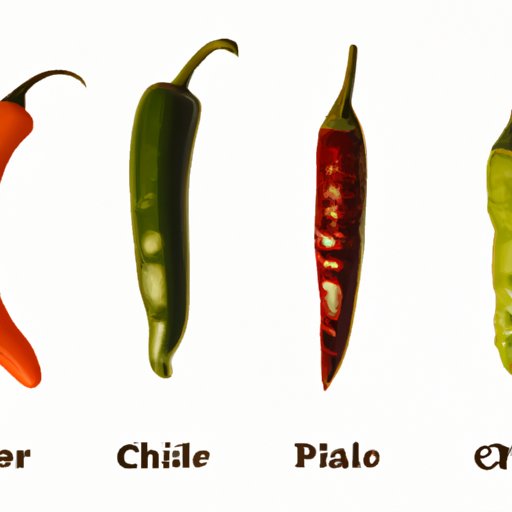Introduction
Chili peppers are a popular ingredient in many dishes around the world. They add flavor and spice to meals, and can be used fresh, dried, or powdered. But did you know that chili peppers have some surprising health benefits? In this article, we’ll explore the nutritional profile, potential health benefits, and potential health risks associated with consuming chili peppers.

Exploring the Health Benefits of Chili Peppers
Chili peppers are an excellent source of vitamins and minerals, including vitamin C, potassium, and magnesium. They also contain antioxidants, which can help protect your cells from damage. Additionally, chili peppers are low in calories and fat, making them a great choice for those looking to maintain or lose weight.
Weight Loss Benefits
In addition to their low-calorie count, chili peppers may also help promote weight loss. Studies have shown that capsaicin, the compound that gives chili peppers their spicy kick, can increase metabolism and suppress appetite. This means that chili peppers can help you burn more calories and eat less, leading to weight loss over time.
Adding Spice to Your Diet: The Benefits of Chili Peppers
In addition to their nutritional profile, chili peppers offer a host of other potential benefits. Capsaicin has anti-inflammatory properties, which can reduce inflammation throughout the body. It can also help improve digestion and reduce blood pressure. Finally, consuming chili peppers can help boost your immune system and fight off infection.
Health Risks Associated with Eating Chili Peppers
Though chili peppers can be beneficial, there are also some potential health risks associated with consuming them. Eating too much chili pepper can cause heartburn, stomach irritation, and even allergic reactions. It’s important to talk to your doctor before adding large amounts of chili peppers to your diet.

How to Incorporate Chili Peppers into Your Diet
If you’re interested in incorporating chili peppers into your diet, there are a few ways to do so. One way is to use them in cooking. Adding chili peppers to soups, stews, or stir-frys can add flavor and spice to your meals. You can also add chili peppers to salads or eat them as a snack. Just make sure to start slow and increase your intake gradually.

A Comparison of Different Types of Chili Peppers
There are many different types of chili peppers available, each with its own unique flavor and level of spiciness. Some of the most popular varieties include jalapenos, habaneros, and serranos. The heat level of chili peppers is measured in Scoville heat units (SHU). The higher the SHU, the hotter the pepper. For example, jalapenos have an SHU of 2,500 to 8,000, while habaneros have an SHU of 100,000 to 350,000.
Conclusion
Chili peppers are a flavorful and nutritious addition to any diet. They are rich in vitamins and minerals, and can help promote weight loss and reduce inflammation. However, it’s important to talk to your doctor before adding large amounts of chili peppers to your diet, as they can cause heartburn, stomach irritation, and allergic reactions. With the right precautions, chili peppers can be a tasty and healthy addition to your meals.
(Note: Is this article not meeting your expectations? Do you have knowledge or insights to share? Unlock new opportunities and expand your reach by joining our authors team. Click Registration to join us and share your expertise with our readers.)
